Click the above ↑ “Traditional Chinese Medicine Tang Lue” Follow Us

Written by | Tang Lue
Wind, cold, heat, dampness, dryness, and fire are the six qi of nature. If they become excessive, they are referred to as the “Six Excesses” and can lead to disease.
The Six Excesses are seasonal, manifesting in unique seasonal diseases. Understanding their sources and characteristics can provide a macro perspective on various diseases throughout the year, which is very helpful for our prevention and treatment of illnesses.
When studying the Five Elements, we created a table that shows the correspondence between the Five Elements, the Four Seasons, and the Six Excesses:
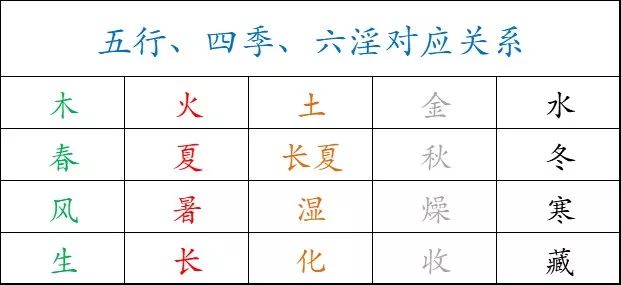
Each season corresponds to one of the Six Excesses. This pathogenic qi may cause illness or may lie dormant, only to emerge in the next season to cause trouble.
Thus, regarding pathogenic factors:
In spring, the pathogenic factor is wind, along with hidden cold;
In summer, it is heat, along with hidden wind;
In autumn, it is dryness, along with hidden heat;
In winter, the main pathogenic factor is cold, along with hidden dampness.
The Huangdi Neijing states:
“In winter, injury from cold leads to spring diseases of warmth.
In spring, injury from wind leads to summer diarrhea.
In summer, injury from heat leads to autumn fevers.
In autumn, injury from dampness leads to winter cough.”
In spring, injury from wind
Wind-Cold Common Cold
▼
Spring belongs to wood, and the wind qi is strong. Therefore, after the beginning of spring, although the weather is still cold, we can already feel the vitality of spring in the wind.
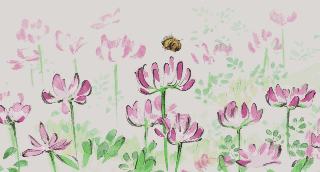
As the weather warms, the wind brings forth all things, causing various buds and flowers to bloom, all driven by the wind qi.
In the gentle spring breeze, people feel joyful and energetic, wanting to exercise, stretch, sing, and even yearn for art and love.
However, if you spend too much time in the wind, you may come home with a headache, which indicates you have caught a cold. Therefore, wind-cold colds are very common in spring.
In early spring, the wind carries cold air, leading to many wind-cold colds, with symptoms of headache, aversion to cold, aversion to wind, clear nasal discharge, and little or no sweating.
When faced with this issue, do not endure it.
Quickly head to the kitchen, find some scallions and fermented black soybeans, and you can add some ginger and jujube. Boil them into a soup, drink it, sleep, and sweat it out, and you will feel better. This is the famous Scallion and Fermented Black Soybean Soup, used to treat wind-cold colds.
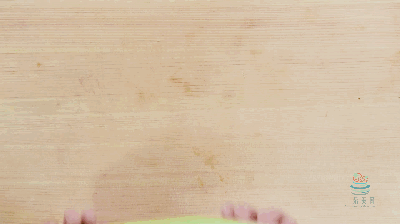
Wind-Heat Common Cold
▼
In late spring, the wind carries heat, leading to more cases of wind-heat colds.
Symptoms include excessive sweating, fever, and sore throat. At this time, you should use Yin Qiao Jie Du Wan.
If you experience dry mouth, it indicates that the hidden cold from winter is acting up. Although it is hidden cold, if it has been dormant for a long time, it can transform into heat, and treatment should still use Yin Qiao Jie Du Wan.
As spring transitions to early summer, many people feel drowsy and lack energy. This phenomenon is referred to as “spring drowsiness.” This is because the spring’s growth consumes too much kidney water, leading to insufficient kidney yin. You can use Sheng Mai Yin; if the tongue coating is not thick or yellow and appetite is good, you can also use Liu Wei Di Huang Wan.

How can we prevent these common diseases?
First, do not expose yourself to the “virtual evil and thieving wind”.
In spring, the wind should be the east wind; if it is the west or north wind, it will inevitably carry cold air. In this case, you should go out less or wear more clothes when going out, and wear a hat.
If it is the south wind, it will carry warm and humid air, so be cautious as well.
Additionally, in spring, it is important to pay attention to rest. When you experience spring drowsiness, it is actually your body signaling that you need to rest, so do not force yourself to stay awake.
If you do not pay attention to these factors and catch a cold, and then fail to treat it properly, it often leads to chronic issues such as allergic rhinitis and other allergic symptoms.
Allergies are a result of being “overly sensitive”; the body is not normally this sensitive, but due to interference from external evils (especially wind evil) and weakened righteous qi, people become overly sensitive.
In summer, injury from heat
At the beginning of summer, the weather is not very hot, but rather comfortable.
At this time, the vegetation is lush, and the human body is also vigorous, making it generally less prone to illness.
However, as the summer solstice approaches, the weather becomes very hot, and with heat comes humidity, leading us into the most difficult season of the year: the hot season.
Heat Evil Injures Body Fluids
▼
Heat evil primarily causes great heat, which can leave the body feeling disoriented.
On the surface, heat first causes sweating to dissipate heat, but excessive sweating can injure body fluids, leading to thirst. What should be done?
You can drink some sour plum soup. The sour plums and hawthorn in sour plum soup are very sour and can consolidate sweat, relieve thirst, and aid digestion, which was commonly used by laborers in the past.
However, wealthier families would use Sheng Mai Yin: American ginseng, Ophiopogon, and Schisandra, which can tonify qi and generate body fluids, and Schisandra also has astringent properties.
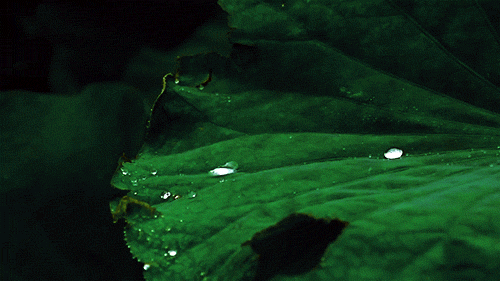
If you are engaged in physical labor outside, eating a lot and sweating a lot, you can use sour plum soup;
If you usually do little physical activity and primarily engage in mental work, and when the weather heats up you sweat a lot and feel dizzy, it is better to drink Sheng Mai Yin.
Heat Evil Obstructs Qi Mechanism
▼
Internally, heat evil can obstruct the body’s qi mechanism, causing mild fatigue and lethargy, or severe abdominal pain. In this case, you need to open the orifices.
Fragrance can open the orifices; in summer, smelling flowers, especially the fragrance of lotus flowers and leaves by the lotus pond, is very beneficial for health. This can help relieve heat. Traditional Chinese medicine still advocates for a lifestyle that includes enjoying the beauty of nature.
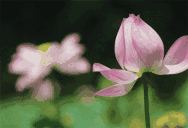
If symptoms worsen, you can boil lotus leaves in water to drink, which can also help relieve heat. If symptoms are more severe, you should add Liu Yi San (a formula of talc and licorice in a 6:1 ratio). In the past, a patient experienced abdominal pain in summer and heard that Huo Xiang Zheng Qi Shui could relieve heat, so he drank a lot, but the pain worsened. I advised him to boil a lotus leaf in water, and after drinking it, he expelled a lot of foul-smelling stool, and the pain subsided.
Huo Xiang Zheng Qi Shui is also a commonly used remedy for summer heat; why did it not work here?
Because this is a case of heat evil obstructing the qi mechanism, which has not yet developed into damp-heat. Only when the heat evil has persisted for a long time, and the person has been cooling off in a cold room while eating raw and cold fruits, leading to closed pores and internal dampness, poor appetite, and general discomfort, can Huo Xiang Zheng Qi Shui be used.
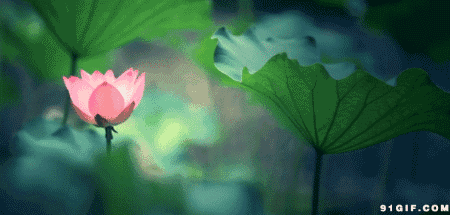
In spring, injury from wind leads to summer diarrhea
▼
In summer, people are more prone to diarrhea. This is because yang qi is on the surface, and there is coldness in the abdomen, so once food is spoiled, diarrhea can occur. Generally, if diarrhea occurs without other symptoms, it is not serious, but there are special cases:
If there is pain before diarrhea, and after diarrhea, there is no pain, with each episode being a cycle of pain followed by diarrhea, this is called “suan xie” (a type of diarrhea caused by spring’s hidden wind).
In such cases, a very effective formula is Liu Cao Chuang’s Painful Diarrhea Formula, which consists of four herbs: Bai Zhu (White Atractylodes), Bai Shao (White Peony), Fang Feng (Siler), and Chen Pi (Dried Tangerine Peel). We discussed this in detail in the article: “Starting to have diarrhea as soon as summer begins?”
Cholera
▼
If there is vomiting and diarrhea, you must be very careful; this is called cholera.
It is often caused by heat or by eating spoiled food in hot weather, leading to chaos in the spleen and stomach, where the spleen cannot raise the clear fluids, resulting in diarrhea, and the stomach cannot descend the turbid, resulting in vomiting.
This is very dangerous and requires immediate medical attention.
In autumn, injury from dryness
In autumn, many places experience the “autumn tiger,” where the climatic characteristics of summer persist, so treatment should still follow the principles for summer heat.
However, as autumn cools down, it becomes refreshing, and people feel very comfortable in this environment, generally not prone to illness. Even the mild damp-heat that may have been hidden during summer will dissipate with the coolness of autumn.
However, sometimes people may catch a cold due to excessive desire for coolness, leading to symptoms such as nasal congestion, clear nasal discharge, and cough, along with dryness in the nose and skin. This is typical of autumn dryness.
At this time, if you think it is due to cold and use Ma Huang Tang, the patient will sweat but feel very uncomfortable; if you see heat symptoms and use Yin Qiao San or similar medicines, it will only increase phlegm. In this case, you should use a method of bitter warming to alleviate dryness, or use Xing Su San. There is a very useful patent medicine called Tong Xuan Li Fei Wan.
Of course, if there are no exterior symptoms and only dryness, you should nourish yin and moisten dryness.

Autumn is primarily characterized by dryness; if autumn is not dry but damp, people will also feel uncomfortable:
-
They may suffer from dampness, leading to various damp symptoms.
-
Or dampness may lie dormant, affecting the lungs, causing poor distribution of body fluids, leading to cough in winter, especially with thick phlegm. This is actually the dampness that has been hidden in autumn. Being able to cough it out is a good thing.
In winter, injury from cold
In winter, the common illness is catching a cold.
The characteristics of catching a cold include aversion to cold, no sweating, which means fear of cold, no sweat at all, and fever.
If it is a mild cold, you can still use Tong Xuan Li Fei Wan; if after using Tong Xuan Li Fei Wan you still feel cold and symptoms do not improve, you should see a doctor.
If winter is not cold but warm, it can lead to winter warmth. The heat symptoms can be particularly severe, such as fever, sore throat, irritability, and thirst, and some may even be infectious. Treatment should still use Yin Qiao Jie Du Wan.
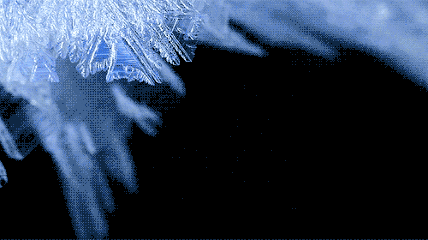
Earth is Strongest at the End of Each Season
Damp evil, as we discussed last time. (Refer to the article: How to Deal with Damp Evil?)
Damp evil belongs to earth, and earth is strongest at the end of each season; the last 18 days of each season belong to earth.
This means that damp evil exists throughout the year. Additionally, some diseases are most likely to occur during seasonal transitions, which are also related to phlegm-damp or spleen deficiency.
All Six Excesses Can Transform into Fire
Fire evil is also common and exists throughout the year.
All Six Excesses Can Transform into Fire. Wind, cold, heat, dampness, and dryness, when they linger in the body for too long, can all transform into fire. When treating fire, one cannot simply clear the fire; one must also consider how the fire originated. Some can be cleared, while others cannot and must be dispersed.
If one only uses cold and cooling medicines to clear fire, then the cold and cooling medicines can obstruct the qi mechanism, trapping the fire inside, resulting in the more clearing fire medicine used, the greater the fire becomes, potentially developing into other serious diseases.
Therefore, we should not recklessly take clearing fire medicines or anti-inflammatory drugs at the first sign of heat.
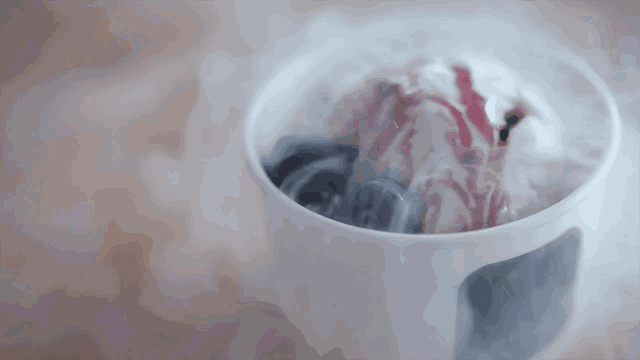
All diseases arise from the six qi; excessive wind, cold, heat, dampness, dryness, and fire can lead to any disease. As long as treatment is timely, it is unlikely to develop into a serious illness.
If delayed or misdiagnosed, it may develop into a serious illness, and it can be said that any serious illness arises this way.
Therefore, the true skill of a physician lies in treating diseases caused by the Six Excesses and seasonal diseases. Successfully treating these types of diseases not only prevents serious illnesses from occurring but also allows for tracing back to their origins when serious illnesses do arise, thus achieving a complete cure.
Thus, I would like to recommend two books: one is Shibing Lun, which specifically discusses how to treat seasonal diseases throughout the year, authored by the Qing Dynasty physician Lei Feng.
The other is National Famous Doctors’ Case Compilation, compiled by the famous TCM physician He Lianchen during the Republic of China, which solicited contributions from renowned physicians across the country.
The main part discusses the treatment methods for the Six Excesses, categorized into cases of wind excess, cold excess, heat excess, damp excess, dryness excess, and fire excess. Many serious diseases are unraveled from the perspective of the Six Excesses, using differential diagnosis and treatment; the latter part includes cases of infectious diseases, which are even more alarming.
If you want to gain a deep understanding of the Six Excesses, reading these two books is sufficient.

